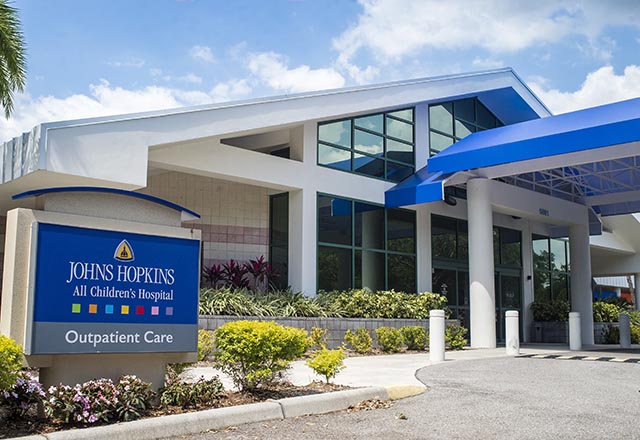Exercise Stress Test
An exercise stress test measures how your child’s heart responds to exercise and increased activity.
If your child has issues with exercise or other activity, an exercise stress test can help doctors determine the cause of your child’s limitations and detect problems with your child’s heart or lungs.
We provide stress test services for children and adolescents, as well as adults as part of the Adult Congenital Heart Disease program at Johns Hopkins All Children's Hospital in St. Petersburg, Florida.
What happens during a stress test?
During an exercise stress test, your child will use a treadmill or stationary bike. The test will begin with a warmup phase, with the activity level increasing throughout the test. To achieve the most accurate data, your child will be asked to exercise as long as he or she can.
Your child will be monitored during the test with an electrocardiogram, which records the electrical signals coming from the heart. Stickers are placed on your child’s torso. The stickers have sensors that measure the heart’s electrical signals. Your child’s blood pressure will also be monitored during the test.
Your child may need additional monitoring during the test, such as a mask to measure gas exchange (the inhaling of oxygen and exhaling of carbon dioxide) in the lungs and determine your child’s fitness level during exercise. Monitoring may also include a pulse oximeter, which is a small device that is placed on the finger and uses light to measure the oxygen level in the blood.
Some patients may also do a breathing assessment called a pulmonary function test before and after they exercise to measure how well their lungs are working.
All the monitoring that takes place during an exercise stress test is non-invasive and does not hurt. Your child’s referring physician will indicate the type of monitoring your child should receive when they order the test.
How long does a stress test last?
Patients will spend 8-20 minutes total on the treadmill or stationary bike, depending on their individual testing needs. The entire appointment will typically take at least an hour.
How should patients prepare for a stress test?
- Patients need to wear close-toed shoes for a stress test. Please wear sneakers and comfortable clothes suitable for exercise.
- Patients should eat a light meal and drink water before their stress test. Avoid having a heavy meal before the test.
- Do not have any caffeine, tobacco or alcohol on the day of the stress test.
- Discuss with your cardiologist whether to take your regular medications before a stress test.
- After the stress test, the cardiologist will review the data and will follow up with you to discuss the results.
Contact Us
For more information or to make an appointment, please give us a call at the phone number below. We serve families in the greater Tampa Bay area and beyond.
Give us a call
Call 727-767-3333
Our Locations
-
Johns Hopkins All Children's Hospital (Main Hospital Building)
501 6th Ave South , St. Petersburg, FL 33701

-
Johns Hopkins All Children's Outpatient Care
Tampa 12220 Bruce B Downs Blvd., Tampa, FL 33612

-
Johns Hopkins All Children's Outpatient Care
Sarasota 5881 Rand Blvd., Sarasota, FL 34238


